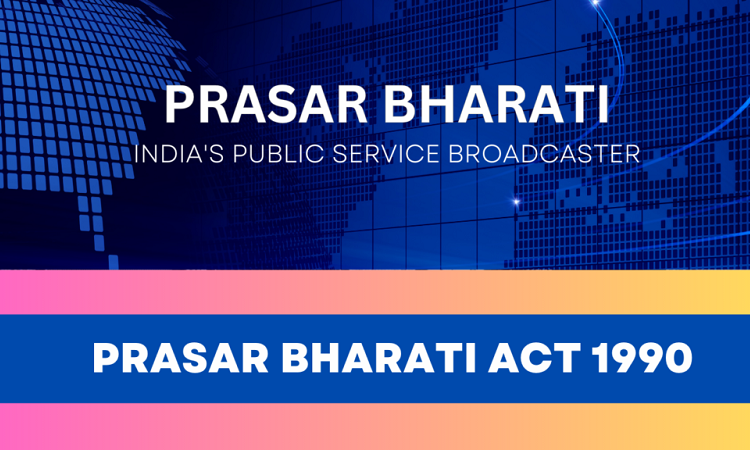
On September 6, 1990, a historic moment unfolded in the Indian Parliament. It was the day when the Prasar Bharti Bill was passed, marking a significant step towards the autonomy and independence of India's largest public broadcaster. Just six days later, on September 12, 1990, the Prasar Bharti Act received the assent of the President of India, paving the way for a new era in Indian broadcasting.
The Genesis of Prasar Bharti
Prasar Bharti, often referred to as the Broadcasting Corporation of India, was conceived to be an independent body responsible for managing the Doordarshan Television Network and the All India Radio (AIR). Previously, both entities had been under the jurisdiction of the Ministry of Information and Broadcasting. The demand for such independence arose from the belief that government-owned broadcasters should operate with a degree of autonomy similar to broadcasters in other countries.
With the passage of the Prasar Bharti Act, all assets, liabilities, properties, and responsibilities concerning Akashvani (All India Radio) and Doordarshan were transferred to Prasar Bharti. This pivotal move laid the foundation for the organization's future role and responsibilities.
Structure and Leadership
The Prasar Bharti board is composed of various members, including a Chairperson, an Executive Member, a Member for Finance (Ex Officio), a Member for Personnel (Ex Officio), and six part-time members. Additionally, there are Directors General for both Akashvani and Doordarshan, a representative from the Union Ministry of Information and Broadcasting, and two representatives of the corporation's employees.
Currently, Mrinal Pandey serves as the Chairperson of Prasar Bharti, with Jawahar Sircar as its CEO. The President of India appoints the Chairman and other members, excluding ex officio members, nominated, and elected members. The Prasar Bharti board is mandated to convene a minimum of six times a year, ensuring that the organization operates effectively and efficiently.
Mission and Responsibilities
Prasar Bharti's core mission is to conduct public broadcasting aimed at educating and entertaining viewers. The organization is entrusted with the task of fostering balanced growth in both radio and television broadcasts. Moreover, it is committed to upholding the unity and integrity of the nation, as stipulated by the Constitution of India.
One of Prasar Bharti's primary responsibilities is to provide citizens with truthful and unbiased information on national and international matters. It also plays a vital role in spreading literacy, promoting agricultural development, addressing environmental concerns, and improving public health. The organization endeavors to showcase the rich diversity of Indian culture and promote sportsmanship among viewers. Additionally, Prasar Bharti serves marginalized sections of society, including children, the handicapped, and other vulnerable groups.
Furthermore, Prasar Bharti places a strong emphasis on research and development to ensure that its radio and TV broadcasts remain updated and relevant to the evolving needs of its audience.
The Digital Revolution
In line with modern technological advancements, both AIR and Doordarshan are undergoing digitization efforts. Several Doordarshan Kendras have already embraced digital broadcasting, with plans in place to digitize and modernize existing infrastructure further. Prasar Bharti is actively investing in new transmitters, including digital ones, to enhance the quality and reach of its broadcasts.
The Prasar Bharti Act of 1990 marked a significant turning point in India's broadcasting history. It provided much-needed independence to the nation's largest public broadcaster, allowing it to fulfill its mission of educating, entertaining, and informing the citizens of India. As technology continues to evolve, Prasar Bharti remains committed to adapting and innovating, ensuring that it continues to serve the diverse needs of its audience while upholding the principles of truth, integrity, and independence that underpin its existence. While the act was passed on September 6, 1990, it wasn't until September 15, 1997, that Prasar Bharti officially came into force, solidifying its role as a cornerstone of Indian broadcasting.